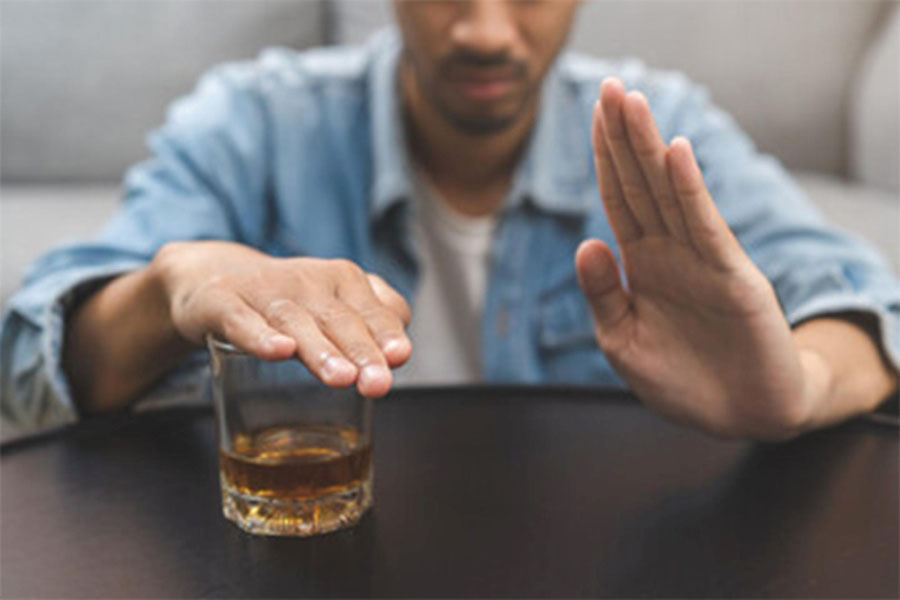3 weeks of no alcohol is a significant milestone. When you’re trying to get sober after struggling with alcohol addiction, it takes a lot of effort to manage withdrawal symptoms, cravings, and the daily stresses of life without drinking in those first few weeks.
Whether you’ve already made it 3 weeks sober or are wondering what happens during and after the first few weeks after quitting drinking, it’s common to have a lot of questions throughout the process.
We’re here to help at Genesis House. We offer alcohol addiction treatment programs and have seen the benefits of quitting alcohol time and time again. Plus, we know that even after a big milestone like 3 weeks of sobriety, it’s common to feel a mixture of relief, challenges, and curiosity about the next steps you should take.
What happens at 3 weeks sober? What strategies will help maintain sobriety long-term, from 21 days of no alcohol and beyond? Keep reading as we discuss all the details.
Physical Changes at 3 Weeks Sober
First, you may notice several physical changes. Some common physical changes after 3 weeks of no alcohol are:
Improved Sleep Patterns and Quality
Alcohol can affect your sleep significantly. Studies show that drinking before bed can affect your ability to get into restorative REM sleep and stay asleep. Plus, you may experience trouble sleeping in the first couple of weeks of withdrawal.
However, by week 3, most or all the traces of alcohol will have left your system, and withdrawal symptoms are likely reduced. So, it’s common to feel your sleep patterns and quality improving.
More Energy and Stamina
Both the effects of alcohol abuse and withdrawal can lead to fatigue and low energy. By 3 weeks of sobriety, many people feel more energy returning, making it easier to complete their daily tasks.
Clearer Skin and Reduced Inflammation
A study in 2023 linked alcoholism to several skin-related issues and diseases, such as acne, rosacea, psoriasis, and dermatitis. A lot of it has to do with alcohol’s dehydrating, inflammatory, and gastrointestinal effects. Therefore, after you’ve stopped drinking for a while, you’ll likely see your skin’s appearance improve.
Stabilized Blood Pressure and Liver Function
Heavy alcohol use can have significant effects on the liver and cardiovascular system. When it continuously taxes your system, you may notice negative health consequences like poor cardiovascular markers (such as high blood pressure) and liver damage or disease.
The British Liver Trust states that the liver can start healing from mild damage within 2-3 weeks of quitting drinking. They also mention that sustained sobriety will lead to better improvements over time, including improving health markers associated with more serious liver damage.
Additionally, a study from the Journal of Addiction analyzed alcoholics with high blood pressure. After 4 weeks of abstinence, there was a noticeable reduction in blood pressure levels, which was even more significant after 16 weeks. That means that sustained abstinence leads to increasingly better results.
Fewer or No Cravings Compared to the First Week
The first 1-2 weeks after quitting drinking result in the strongest physical withdrawal symptoms and cravings. After 3 weeks, many start noticing withdrawals and cravings getting easier to manage or go away entirely.
If significant withdrawal symptoms persist, it may indicate underlying conditions or severe dependence, and it’s a good idea to reach out to a treatment center for help.
Mental and Emotional Shifts
You may also hear about improved mental clarity after quitting drinking or emotional shifts at the 3-week mark. Here are some key things you may notice:
Reduced Anxiety and Improved Mood
Anxiety, paranoia, and mood swings are common side effects that occur during the initial 1-2 weeks of alcohol withdrawal. Many will feel those symptoms subsiding after 3 weeks without alcohol.
However, some mental health symptoms can persist, such as lingering depression. Therefore, it’s important for treatment programs to manage mental symptoms on a case-by-case basis.
Beginning of Emotional Sobriety
Once the big physical withdrawal symptoms begin subsiding, there’s usually still emotional work that needs to be done in recovery. For example, it can bring up regrets of past actions related to alcohol abuse, worries about staying sober, or underlying issues that contributed to the addiction.
A well-rounded rehab program consisting of therapy, life skill building, and holistic care can help manage this aspect.
Mental Clarity Improves
Excessive drinking and alcohol withdrawal can cause brain fog that makes someone feel groggy and out of it. That effect often starts going away at around 3 weeks of no alcohol.
Triggers Can Still Cause Cravings
Even if physical withdrawals and cravings end, there’s still a mental side to it. Things in daily life, like driving past a bar or being in a social situation you associate with drinking, can emotionally trigger cravings. In treatment, relapse prevention planning is important to know how you’ll handle those situations.
Common Challenges at This Stage
Even after the relief of completing a significant alcohol recovery milestone, many still encounter doubts or challenges that are important to be aware of and manage appropriately. Those include:
Emotional Vulnerability
There’s a significant element of emotional vulnerability while recovering from addiction. Improving relationships, managing shame associated with alcohol abuse, or unresolved trauma can all still be affecting you 3 weeks after quitting drinking.
It’s important to know that those feelings are natural and that resources like therapy and support groups are available to help.
Boredom or Social Isolation
Your life will look and feel a lot different after quitting drinking. You might stop spending time with people who encourage drinking or struggle figuring out what hobbies to partake in to take up your time. It’s a big reason why focusing on lifestyle change and building positive habits and hobbies in rehab is so impactful.
Overconfidence
Some may start to feel overconfident after 3 weeks without alcohol. While you may feel a lot better at this stage, managing addiction is an ongoing process. Daily stress, triggers, and unexpected emotional distress can still pop up, and it’s essential to have a plan and support to ensure continued success.
The “Pink Cloud” Effect Wearing Off
The pink cloud effect describes the early stages of alcoholism recovery. Some may feel a sense of optimism, joy, and hope initially when they begin rehab and quit drinking.
However, the process of managing withdrawal, cravings, and building a solid emotional foundation to maintain sobriety requires a lot of work and effort. You may start feeling that the initial motivation is wearing off after a few weeks of hard work.
If you begin to feel this way during rehab, it’s essential to talk with your therapist or treatment advisors to ensure you stay on the right track. It can be helpful to revisit why you decided to get sober and notice how continued effort will keep positively impacting your life.
Staying Strong After 3 Weeks of No Alcohol (Tips & Next Steps)
After 3 weeks without drinking, there are several things you can do to stay on the right track for long-term success. Those include:
- Keeping a journal to track your progress. Daily check-ins can help you see how far you’ve come, note challenges you’re facing, and continue planning for success.
- Joining or continuing therapy or support groups. Therapy and support groups will help you manage the emotional side of recovery and provide structured support each step of the way.
- Rebuilding healthy routines. Working out, eating healthier, sleeping enough, and participating in positive hobbies can all build good habits that facilitate continued sobriety at 3 weeks and beyond.
- Surround yourself with a positive support circle. Whether it’s through a 12-step program or seeking out friends and family who support your sobriety, having a positive social circle will boost feelings of well-being.
If cravings, depression, or relapses occur, consider seeking out professional care that can help. Treatment centers like ours at Genesis House can offer support throughout the process to help you get back on track and continue making progress.
How Genesis House Can Help
Genesis House is a drug and alcohol addiction treatment center. We offer personalized care for addiction at each stage. That includes:
- Medical detox
- Longer-term inpatient or outpatient treatment
- Relapse prevention
- Aftercare when you finish a treatment program
You don’t have to feel like you’re going through recovery alone. Even if you’ve made it 3 weeks with no alcohol and feel like you need extra support, we can provide guidance and programs to keep you going.
No matter where you are in recovery, we’re here to help. Contact Genesis House today to learn more.
FAQs
What Happens After 3 Weeks of No Alcohol?
The most severe withdrawal symptoms and cravings for alcohol will usually subside after 3 weeks without alcohol. However, some light withdrawals and cravings may still linger, and it’ll be essential to focus on emotional recovery from addiction. Continuous management through therapy, support groups, and lifestyle change will help.
Is Three Weeks Without Alcohol a Milestone?
3 weeks without alcohol isn’t an official milestone in AA or other recovery programs. However, many people in the early stages of rehab will see each of the initial weeks as little milestones. You can even work with your therapist or treatment team to set milestones that motivate you to keep progressing and reflect.
Why Do I Still Feel Cravings After 21 Days Without Drinking?
Alcohol withdrawal and cravings can affect everyone differently. Still feeling cravings after 21 days could be a sign of more serious dependence or underlying conditions contributing to the addiction. It’s important to discuss it with treatment professionals who can help you manage continued cravings based on your needs.
If you have any questions about ongoing cravings or the next steps in recovery, you can reach out to us at Genesis House for support.
References
- Ebrahim, Irshaad O., et al. “Alcohol and Sleep I: Effects on Normal Sleep.” Alcoholism: Clinical and Experimental Research, vol. 37, no. 4, 24 Jan. 2013, pp. 539–549, doi:10.1111/acer.12006. https://pubmed.ncbi.nlm.nih.gov/23347102/
- Liu, Lin, and Jin Chen. “Advances in Relationship between Alcohol Consumption and Skin Diseases.” Clinical, Cosmetic and Investigational Dermatology, vol. Volume 16, 1 Dec. 2023, pp. 3785–3791, doi:10.2147/ccid.s443128. https://pmc.ncbi.nlm.nih.gov/articles/PMC10759914/
- BLT. “Love Your Liver Month – Alcohol and the Liver.” British Liver Trust, 18 Jan. 2024, https://britishlivertrust.org.uk/lyl-alcohol-and-the-liver/
- Stewart, Scott H., et al. “Blood Pressure Reduction during Treatment for Alcohol Dependence: Results from the Combining Medications and Behavioral Interventions for Alcoholism (COMBINE) Study.” Addiction, vol. 103, no. 10, Oct. 2008, pp. 1622–1628, doi:10.1111/j.1360-0443.2008.02317.x. https://pmc.ncbi.nlm.nih.gov/articles/PMC2634596/






